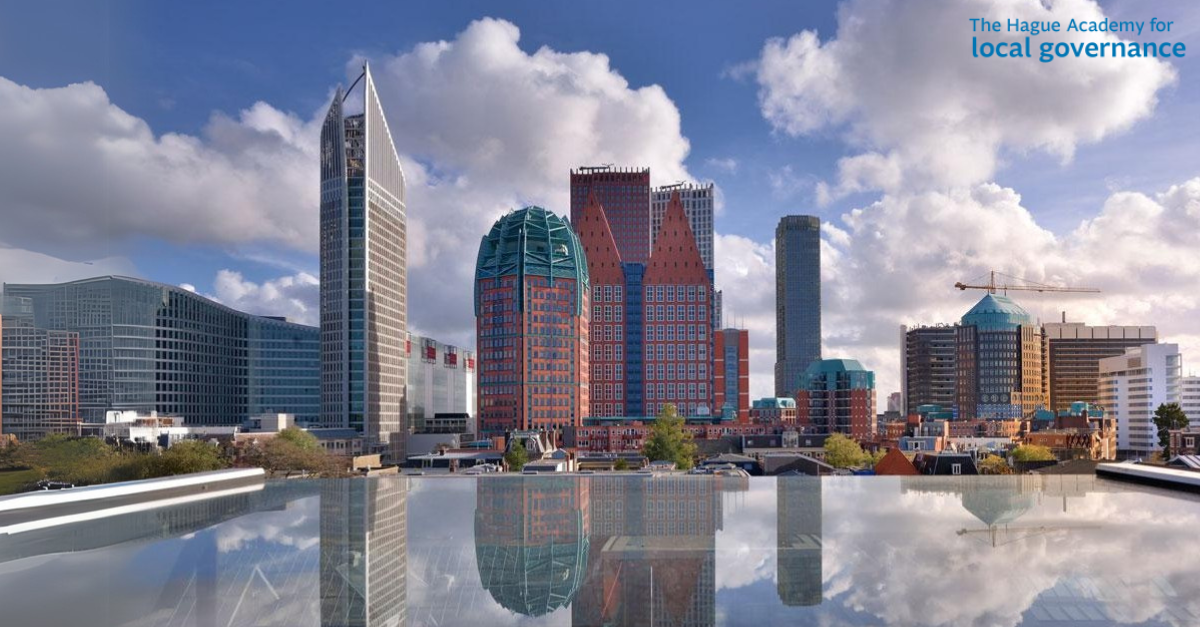
Humanitarian response alone is utterly insufficient to deal with the shocks and risks facing cities today. Local governments and states must establish solid links between crisis response and resilience for sustainable development.

Over half of the world’s population lives in urban areas, making cities essential drivers of innovation, economic development and social progress. However, rapid urbanisation also brings significant challenges such as increased poverty and inequality, migration, and health risks. Moreover, cities increasingly face the impact of climate change and natural disasters. In response to these issues, improving urban resilience – cities’ ability to withstand and recover from both internal and external shocks – is critical. By embedding resilience, sustainability, and technological innovation into the core of urban planning, cities can play a leading role in addressing global challenges.
This course aims to equip participants with frameworks, strategies, and tools to strengthen urban resilience. It focuses on how cities can maintain essential functions, adapt to continual change, and thrive in the face of evolving risks. Smart city solutions are explored, with particular attention to how data and technology enhance efficiency and resilience. The course also shows examples of urban governments creating inclusive cities by ensuring accessibility of services and urban spaces for vulnerable groups in the community.
Humanitarian response alone is utterly insufficient to deal with the shocks and risks facing cities today. Local governments and states must establish solid links between crisis response and resilience for sustainable development.
This course is intended for professionals involved in urban governance and development such as city planners and urban policy makers. Participants come from national, regional and local governments, NGOs, knowledge institutes and donor and development organisations.
After this course, you will receive a professional certificate of completion from The Hague Academy for Local Governance.
*Professionals working in local government or for local NGOs on the DAC list of ODA-recipient countries (OECD) may qualify for a reduced course fee. Contact us for details.
This course will help you:
Experts that are involved in this course:
Throughout the course, participants will actively contribute their personal experiences and insights. They will engage in interactive exercises, case studies, and lively debates with experts who are urban practitioners themselves as well as with fellow participants. Moreover, they will experience urban solutions first-hand by visiting projects such as the Living Lab in Scheveningen, floating houses in the sustainable neighbourhood De Ceuvel in Amsterdam, the urban Green Village in Delft, and urban water management in Rotterdam.
This hands-on approach allows participants to apply concepts and frameworks to real-world challenges, sharing lessons learned from their own work in urban resilience, smart cities, and inclusive development. The exchange of ideas from diverse perspectives will deepen participants’ understanding and help develop practical solutions for addressing urban challenges.
Find the practical information for the course here.
After submitting your completed application, you will receive a confirmation of receipt. Once we have assessed your application and admitted you to the course, we will send you an invoice with payment details.
Payments can be made by bank transfer or by PayPal request. We offer the option of paying in one or two instalments. An advance payment of 50% secures the reservation of a seat at the training until the payment deadline. Your participation in the course is guaranteed only after receipt of full payment.
Please note that The Hague Academy accepts registrations on a first-paid, first-served policy.
Some countries require a visa to enter the Netherlands. Please check with The Netherlands or the embassy for the visa requirements related to your country. Because of the length of time needed for the visa procedure, we advise you to start this process as soon as possible. Once we have received your payment for the course, The Hague Academy will send you an acceptance letter which will assist you in arranging your visa to The Netherlands.
Under certain circumstances, participants may need to cancel their participation in the course. For cancellations before the payment deadline, we will reimburse the paid amounts minus an administration fee of €350.
To prevent late cancellation, we strongly encourage you to start with your visa application procedure at least six weeks before the start of the training programme.
We will charge a cancellation fee of 50% of the course fee for participants cancelling between four and two weeks prior to the start of the training. If you cancel your participation within the two-week period before the start of the course, then you have to pay 80% of the course fee.
No-show will result in paying 100% of the course fee.
It is always possible to nominate a suitably qualified candidate to replace you without extra charge, in the event that you cannot attend the course.
The Hague Academy for Local Governance reserves the right to cancel a course if the number of participants is insufficient or due to any other unforeseen circumstances. In this case, your payment will be 100% reimbursed. Other costs such as transportation or hotel cannot be reimbursed.
The Dutch Ministry of Foreign Affairs offers MSP scholarships for training courses in the Netherlands. The MENA Scholarship Programme (MSP) aims to enhance the skills, instincts, and abilities of professionals, empowering their organizations and communities to thrive in an ever-changing world.
For more information and eligibility criteria, please visit our Scholarships page. Note that scholarships have a separate application process.
Explore our latest news, stories and publications!
At the Hague Academy, we specialise in developing training programmes that fit your specific needs. Contact us if you are interested in a customised training!
